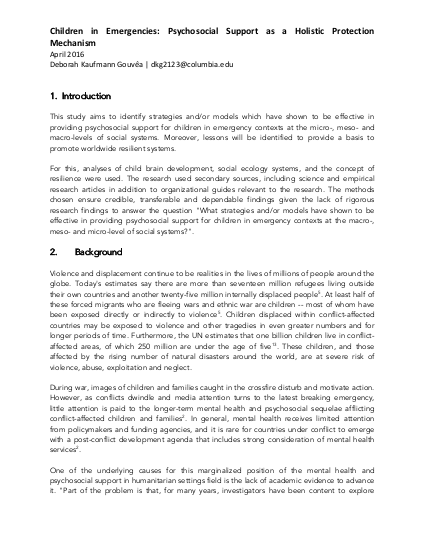
This study aims to identify strategies and/or models which have shown to be effective in providing psychosocial support for children in emergency contexts at the micro-, meso- and macro-levels of social systems. Moreover, lessons will be identified to provide a basis to promote worldwide resilient systems. For this, analyses of child brain development, social ecology systems, and the concept of resilience were used. The research used secondary sources, including science and empirical research articles in addition to organizational guides relevant to the research. The methods chosen ensure credible, transferable and dependable findings given the lack of rigorous research findings to answer the question “What strategies and/or models have shown to be effective in providing psychosocial support for children in emergency contexts at the macro-, meso- and micro-level of social systems?”.